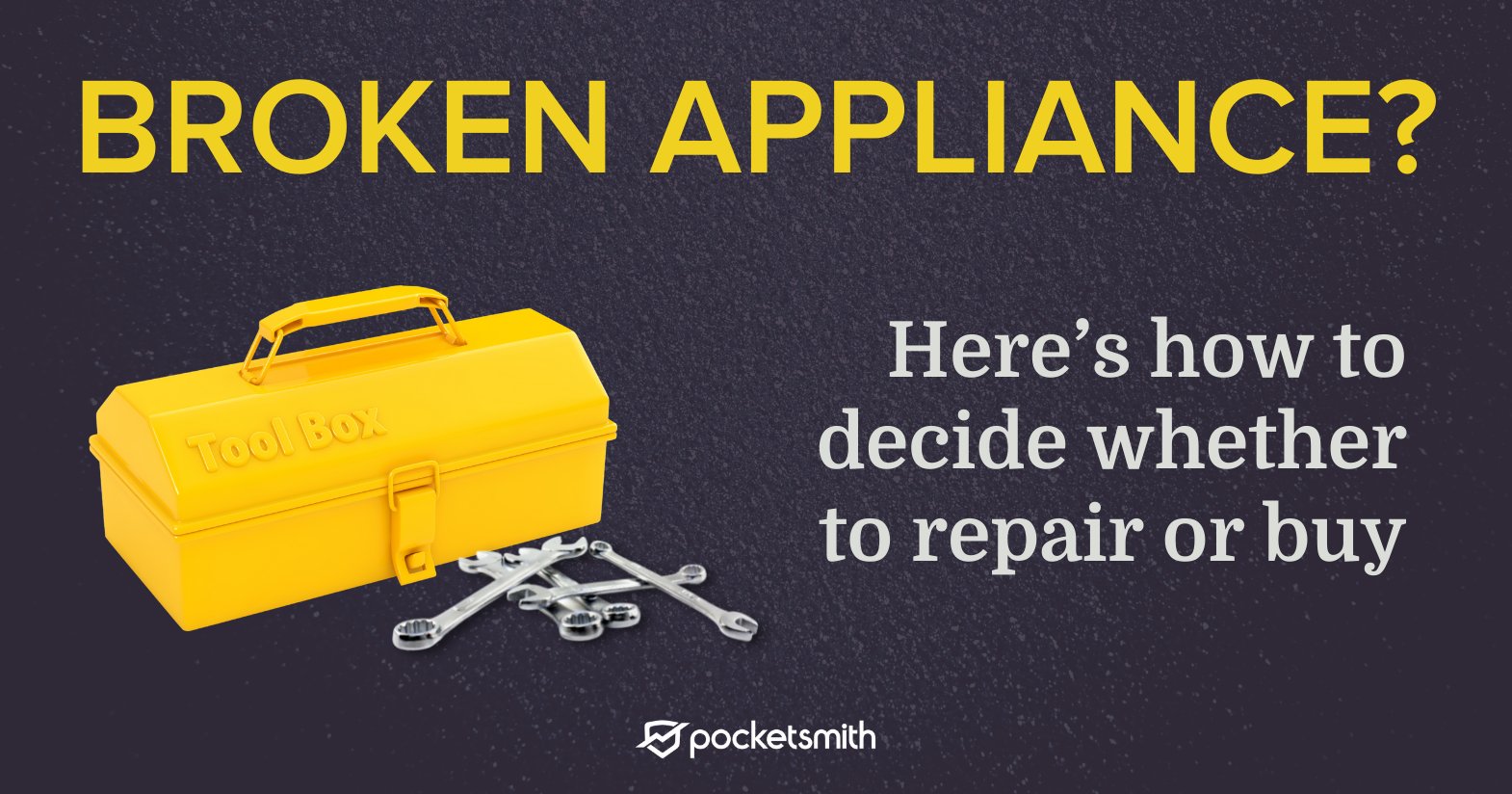
Wanting to repair your broken appliance and save the world while doing so is all very well, but how do you overcome the practical trials and tribulations of restoring your beloved kitchen whizz or weed eater?
In the case of the weed eater, you could grab a tin can and fishing line and reenact its invention (NOT recommended!), or you could follow a few simple considerations to get your cake making and grass trimming back on track.

via GIPHY
Sometimes time is of the essence. That’s okay. We all know the time bomb feeling of a broken fridge or freezer as our leftovers thaw into food safety oblivion. It helps to know how long you have to act – just several hours for a fridge but 24-48 hours for a freezer. That gives you enough time to find a safe and cold place for the food you need to keep, while you consider your options. Consumer Reports provides guidance about whether to buy or replace your fridge or freezer, based on its age and the cost or repair.
Other times, all we need is just a little patience. Rather than being forced into a quick purchase, repairing could give you time to save for the model you really want. Perhaps even a longer-lasting model that will break you out of the vicious cycle of buy and throw.
But breaking out of this cycle is easier said than done. One way is to consider the endgame when you buy, like a prenuptial for your stuff. Consider not only reliability but also repairability. In our throwaway culture, retailers and manufacturers tend to stack the field in favor of constant replacing and upgrading.
Here are some questions to ask when you’re choosing a new model, to tilt the odds in favor of repair:
For example, New Zealand’s Consumer Guarantees Act has rules for when things seem to break down too easily. When you buy something it has to be reasonably durable. What is reasonable depends on a few things, including the price and what the retailer says about the item. Also in New Zealand, manufacturers and importers must guarantee that spare parts and repair facilities are available, or opt-out of this guarantee by giving you notice.
Wherever you are, make sure to ask your retailer what repair options there are for the items at the time that you buy them.
You will need to choose between asking the retailer (where you bought the item) to arrange the repair or an independent repair person such as a registered electrician. If you are keen, you might even try to repair it yourself or with the help of a repair cafe.
If you think your appliance broke down too soon, your first port of call should be the place where you bought it, as they may be required to have it fixed for you. If their policy is to replace it and this was spelled out when you bought the item, but you still want to repair it, you will probably need to find someone else to repair it.
An independent person might be quicker and cheaper, provided they have access to the parts and have experience with the product. If you do choose an independent repair person, make sure to get a quote with the estimated price, timeline, and specific work needed. Remember repair people are providing a service and so must adhere to consumer laws even when repairing with used goods.
Even if it feels daunting, repairing something yourself may be easier than you think, and there is plenty of help available.
Online forums such as ifixit.com give step-by-step guides for fixing a wide range of things, from laptops to loudspeakers. Community repair cafes can not only fix your stuff but teach you how to do it yourself next time.
Why not try to fix something with low stakes next time you get the opportunity – try a radio or a mouse before you attempt your only fridge.
Repairing is great but is not always the best option for the environment. In some cases, new models use more energy (for example bigger televisions) while in others, you might be doing the world a favor by buying a new model and responsibly disposing of the energy-wasting old model.
For example, in general, it is better to decommission old fridges, because new ones are more efficient. But you should hang on to your old phone as long as you can because phone making uses a lot of energy and minerals. Guides are available on whether repairing or buying is better for the environment, such as from the UN environment program’s study of product lifetimes.
If repair is really not for you, think about where to responsibly send your beloved appliance into the next life.
When you buy a new replacement, ask the retailer if they have a service for collecting e-waste. Otherwise, look for a public or community e-waste scheme in your neighborhood. Expect to pay a small charge to cover the costs of disposal.

David loves the challenge of turning complex jargon into great stories. His vice is being unable to read a notice without re-writing it in his head. Most likely to be found taking his coffee for a walk around Dunedin or at the park bowling terrible medium pacers to his two sons.